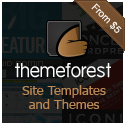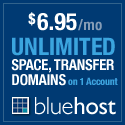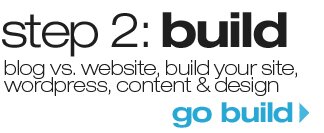Ok so, let me get this straight. Is a blog a type of website?
Confusing right? Don’t feel alone, many people have a hard time understanding the difference between the two and how they relate. Some will agree, some won’t, but I will try and give you an understanding of how they all fit together so when you learn how make a website, it will be easier to see how the pieces fit together.
I read debates all the time online about whether a blog is a website or if a website is a blog. The answer is simple. A blog is a TYPE of website. Tah Dah!
A website is really anyplace you can visit online with URL (domain) and allows you to view content. So essentially EVERYTHING on the internet is a website!
Blogs were created to have a simple interface and post thoughts and ideas in chronological order typically down the middle of the page, with the newest content at the top of the page.
Blogs are dynamically built using a content management system (CMS). A content management system is a collection of tools and scripts designed to allow the creation, modification, organization and removal of information from a website. Using a CMS requires an user to have no HTML or coding knowledge to get started (ie., WordPress, Joomla, Blogger, Drupal, etc.).
Over the years the look and feel of blogs have morphed to resemble static websites and by adding extensions, plugins and custom themes, a user can expand their blog and offer thousands of features.
So the best choice for your website (regardless of the type of website), is to start by using a blog CMS as a foundation, then add specific features based on the purpose of your website and be sure to add static pages of relevant information that is easy to find. Essentially a hybrid between the two.
So why are blogs better than normal websites?
Creating a blog style website is actually the quickest and simplest way to get your online message noticed. Lets be honest, you want to create a website to either be heard (or have your message read) or you are trying to sell something. Regardless of whether your web space is just an online platform to voice your opinions or a stage for venting and ranting or on the other hand a commercial endeavor to make money online the fact remains that you need an online audience to give your efforts any kind of meaning.
Blogs get indexed quickly by search engines and websites don’t. The ultimate goal of your website is to gain traffic from search engines (also known as organic traffic) because it’s the best kind of traffic to get. Blogs have an huge advantage over websites because due to their dynamic nature (meaning the content changes regularly on the homepage) they get favored attention from search engines. This favored attention means that search engine spiders (the creepy crawly scripts that scour millions of websites daily for information, see Search Engine Optimization) keep returning to crawl your blog more than they would a static site.
New content added to a blog is instantly viewable and picked up by search engines! The single most defining feature of a blog is the frequency of updated content on the homepage (or the index page). New content on a blog is by default added to the homepage of the blog at the top. So the very first piece of information a search engine spider encounters on a blog is the newly added content, which if you are not aware, is like honey to a bee.
But the same scenario doesn’t play out for normal websites even if you are adding new content regularly because every time the spider returns to crawl that static site it only goes those two or three levels deep and thus never finds that newly added content.When visitors come to your site if they like what they find they’ll bookmark it and probably make a point of returning to see what’s new. Now if that site of yours is a normal website and you are busy adding new content pages several levels deep, just like the frustrated search engine spider, your human visitors won’t be able to find that new content and will soon leave making a mental note never to bother returning. I mean let’s face it who wants to return to stale content over and over again reading the same old articles?
Optimizing your site for the search engines is far easier with a blog. Ever time you write a new post (new content) on to your blog, you do something called “pinging” the update service. You are notifying the search engines that you have new content on your site. The search engines will visit your site and index your site more often than a static website. Blogs will also show up many times more often in organic searches than a regular website (see Optimizing Your Webpages).
It is much cheaper to set up a blog and maintain the site than it is for a static website. This will probably be #1 on most of your lists. (see How Much Does This Cost?)
Bloggers build credibility far faster than someone running a static website. The blogger is always posting and adding new quality content. The blogger is actually building a relationship with the readers, and the readers have the ability to comment back.
Blogs and websites now go hand-in-hand. Blogs are a great and free way to advertise, comment and blog about your products, catalogs and niche information that is housed on the static website. Blogs, because they’re always changing and growing, attract web spiders from and other search engines, who then build your company’s presence in the search results. And websites are great as well. In order to be truly successful, you are going to need both a blog and a website. Blogs will get to the consumers in a different way through mailing lists and newsletters. They can be the stepping stone towards a website, a consumer can stop at your blog and then from there want to visit your site! If you are looking to drive more traffic and increase your profits, then look to both blogs and websites!
Brand Build Sell is a combination of a website and a blog. On the right side I have links to static content (like the page you are reading now). The static content is organized, easy to find and links directly from the homepage. My dynamic content (or blog) can be seen on the homepage taking up a portion of the left bottom side of the page. There you will see more frequent posts about related topics or products.






